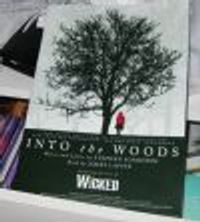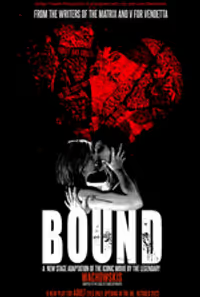Dame Judi : Trigger Warnings
#1Dame Judi : Trigger Warnings
Posted: 5/15/24 at 6:29am
Agree with her 100 per cent.
Don’t go.
Don’t go to the theatre, Dame Judi Dench has told “sensitive” fans, in her response to pre-performance trigger warnings.
The warnings, which inform audiences about potentially distressing content, including abuse, violence and loud noises, have become a point of contention in the industry in the last few years.
“Do they do that?” Dench said in an interview with the Radio Times. “My God, it must be a pretty long trigger warning before King Lear or Titus Andronicus!”
The Oscar-winning actor, 89, added: “I can see why they exist, but if you’re that sensitive, don’t go to the theatre, because you could be very shocked. Where is the surprise of seeing and understanding it in your own way?”
Her comments come after Gregory Doran, the former artistic director of the Royal Shakespeare company also warned anxious audience members to avoid plays so that they would not be upset by distressing content.
#2Dame Judi : Trigger Warnings
Posted: 5/15/24 at 7:10am
They should be available upon request at the theater and websites should have a “click here” instead of just posting them right there for everyone to see.
romain2
Featured Actor Joined: 12/16/10
#3Dame Judi : Trigger Warnings
Posted: 5/15/24 at 7:52am
So with some theaters closing or struggling to survive, they want people to stay home? Interesting.
As someone with a PTSD when it comes to guns, I personally appreciate warnings about when loud blanks will be fired in a relatively small space. I attended a production a while back when a character without warning fired a gun near us and our ears rang the next day. There was absolutely no reason for it to be so freaking loud. The play: Merry Wives of Windsor. I kid you not.
When I see the gun warning I ask someone on staff to tell me when it happens. And I am able to feel more comfortable at the play I, you know, spent money to see as a result. Dame Judi and Sir Ian may think this is ridiculous, but their alternative (staying home instead) is even more so. When it comes to loud gunshots, I believe theaters should use recorded sound effects.
#4Dame Judi : Trigger Warnings
Posted: 5/15/24 at 8:28am
I agree with Judi Dench.
I *also* agree however, withe others when i say that I cannot stand gunshots in plays. It seems like common practise for the last many numbers of years for strobe lights and gunshots to be included.
PS. I need to thank everyone who contributes to the thread on here about the gunshots in shows.
#5Dame Judi : Trigger Warnings
Posted: 5/15/24 at 8:58am
Whatever she said, Dame Dench get an eternal pass.
#6Dame Judi : Trigger Warnings
Posted: 5/15/24 at 9:09am
I like going to a show knowing absolutely nothing about it. That said, people can be triggered and I also agree that such warnings should be available at request.
RunnyBabbit
Stand-by Joined: 2/3/20
#7Dame Judi : Trigger Warnings
Posted: 5/15/24 at 9:14amI don’t get why people get so triggered by trigger warnings. If they don’t apply to you, great. Just ignore them. It’s what I do. If they’re helpful for people to know what’s coming, great. They can read them. A couple of words before a performance/movie/tv show hardly seems like a big deal to me.
Theatrefanboy1
Broadway Legend Joined: 8/2/15
#8Dame Judi : Trigger Warnings
Posted: 5/15/24 at 9:58am
I agree with the Dame. Most recently I attended sound of music with the trigger warnings all posted and when they would happen in the show… then why go? Included in the warning was “nazi images and symbols “ at this point is anyone is going to SoM needing that as a warning you best also warn them about the nuns (if they are triggered by Christian or holy images), seven children (if they are triggered by the idea of procreation, lost a child, or is a former teacher and hates children), and the Austrian mountains (if they have vertigo or a fear of heights).
Like really people. I still remember going to Miss Saigon in 2014 having no idea what it was about. After act one I was shocked and then end of act two sat in my seat for a number of minutes before leaving the theatre I was so moved by the story. And had I been warned of any of it prior I feel like it wouldn’t have hit nearly as hard. It was a beautiful story.
#9Dame Judi : Trigger Warnings
Posted: 5/15/24 at 10:02am
In her answer, it's clear that she had absolutely zero context about trigger warnings or how they are applied. So without context I can understand why someone would be confused about the whole thing. But they can be useful for a wider percentage of the population than one would think.
The most prime example is with autism friendly performances. Many theater companies have been broadening the scope of these offerings, retitling them to sensory friendly. Because it turns out there is an enormous demand for this beyond people who specifically have autism. Including a heads up for content (at these specific performances, it can often include a physical signal when a loud noise is about to occur) and creating a welcoming space has opened up the theatergoing experience to a whole new population that previously could not or would not partake. There is no downside to expanding access to theater.
But trigger warnings, separate from a sensory friendly performance, aren't just plastered on the theater walls and programs. Which is perhaps what Dame Judi envisioned when hearing about them for the first time without a proper explanation of how they are implemented. They are generally located on a specific part of the theaters website, or offered upon request by staff. Again, I really don't see a downside here. If someone has PTSD, sensory needs, or a medical condition that makes them sensitive to strobes or smoke...why not provide them the relevant details if they need it?? If you don't need trigger warnings, it literally doesn't affect you.
What I do know is that simply telling people to not come to the theater, that it isn't a place for them, should not be our response. Not in a post pandemic world where sales are struggling, commercial productions have zero advance, attendance has yet to reach pre-pandemic levels, non-profits are struggling to fundraise and enacting massive cuts to programming and staff as a result, and audiences already seem plenty content to stay home and binge watch TV. Tell folks to stay home if you dare, but be careful: they will listen.
OhHiii
Broadway Legend Joined: 4/30/16
#10Dame Judi : Trigger Warnings
Posted: 5/15/24 at 10:13am
Pretty clear that she’s referring to listing out triggers in a pre-show announcement context. I’m sorry, but the rest of the paying audience should not have what could be considered spoilers for the sake of comfort of some audience members. I agree that, like strobe and fog warnings, they should be available upon request for those who want them. But no one owes sacrificing part of their experience of something they paid to see to the spare few. If you know you have triggers, then you’d know to research what they are specific to a show you’re interested in.
Theatrefan2
Stand-by Joined: 3/27/22
#11Dame Judi : Trigger Warnings
Posted: 5/15/24 at 10:21am
I think having them behind spoiler tags online would be one way. Especially for new productions won't no easily accessible history that you can look up.
But the thing is, you can't protect everyone and predict every scenario. I get triggered by random things, and it isn't consistent what does it and I'd never expect others to go out of their way for my issues. I've learnt to live with it and mitigate as much as I can.
Also some of these trigger warns are going beyond things like gun shots, sexual assault etc. Now you have warnings about classic books and old films etc. I'm sorry, but if you're watching or reading something from a long time ago, and you can't comprehend that there might be out dated situations, then it's you with the issue.
#12Dame Judi : Trigger Warnings
Posted: 5/15/24 at 10:49am
You would think most of us didn't grow up in a world with the MPAA's 'parental guidance' system.
I see quite a bit of theater and I've never once experienced a pre-show trigger warning speech of some kind.
As MayAudra noted, it's clear that Dame Dench has very little context for this. She even says 'I can see why they exist.' Now...imagine the interviewer saying, 'These types of warnings allow people with autism to participate in the world of the theater. It helps veterans suffering from PTSD know when a gunshot may happen. It keeps people with epilepsy from having a seizure due to a strobe effect.'
Do I generally think a trigger warning for the Sound of Music is silly. At first blush, yes. But there is actually a world in which some people have never seen SoM and a surprise swastika might be deeply unsettling. I remember when this controversy arose and I had to go to the theater's website and dig around for that content warning. It wasn't glaringly on the first page. Do I personally think that we need to explore work about fascism now more than ever? Yes. But mileage may vary for different users.
I once did a show where an offstage rape occurred. It was aurally very graphic and my character stayed on stage throughout trying to dissociate from it. I had friends in the audience one night and one of them had to leave at intermissions because it caused her to have a flashback to her own sexual assault. I felt terrible and thought, 'I should maybe flag this for folks.' The idea that it's ridiculous to allow folks to find content warnings so they don't have a flashback to their own sexual assault stuns me.
No content warning has ever affected my enjoyment of a piece. Except when Netflix promises nudity and you get none because they don't change the advisories for every episode.
pmensky
Broadway Star Joined: 7/18/11
#13Dame Judi : Trigger Warnings
Posted: 5/15/24 at 12:45pm
If people don’t have a problem with strobe light and theatrical fog warnings posted in lobbies to warn people who may be effected physically, then I’m not sure why it’s problematic to issue similar warning for people who may be effected mentally. The theatre should be a welcome, comfortable, accessible place for all. I’m glad we’re evolving into a society that recognizes the legitimacy of mental health.
Broadway61004
Broadway Legend Joined: 4/14/11
#14Dame Judi : Trigger Warnings
Posted: 5/15/24 at 12:54pm
pmensky said: "If people don’t have a problem with strobe light and theatrical fog warnings posted in lobbies to warn people who may be effected physically, then I’m not sure why it’s problematic to issue similar warning for people who may be effected mentally. The theatre should be a welcome, comfortable, accessible place for all. I’m glad we’re evolving into a society that recognizes the legitimacy of mental health."
The difference is that knowing that a show contains strobe lights or fog doesn't ruin key parts of the story. Having a statement that says "this play contains suicide, sexual assault, etc." may ruin key plot points.
So I agree that information should be accessible for folks who are bothered by it and feel the need to know, it should also be hidden from those who want to be surprised. So listing it on the productions website right as you're clicking the link to buy tickets to it (as shows often do anymore) is where the problem is. Perhaps as others have suggested, have all that info in a spoilers section or a separate link.
pmensky
Broadway Star Joined: 7/18/11
#15Dame Judi : Trigger Warnings
Posted: 5/15/24 at 1:01pm
Broadway61004 said: "pmensky said: "If people don’t have a problem with strobe light and theatrical fog warnings posted in lobbies to warn people who may be effected physically, then I’m not sure why it’s problematic to issue similar warning for people who may be effected mentally. The theatre should be a welcome, comfortable, accessible place for all. I’m glad we’re evolving into a society that recognizes the legitimacy of mental health."
The difference is that knowing that a show contains strobe lights or fog doesn't ruin key parts of the story. Having a statement that says "this play contains suicide, sexual assault, etc." may ruin key plot points.
So I agree that information should be accessible for folks who are bothered by it and feel the need to know, it should also be hidden from those who want to be surprised. So listing it on the productions website right as you're clicking the link to buy tickets to it (as shows often do anymore) is where the problem is. Perhaps as others have suggested, have all that info in a spoilers section or a separate link."
The very trigger warnings you listed are often listed at the beginning of films and TV shows (“the following contains….”), and no one seems to be complaining about that.
Broadway61004
Broadway Legend Joined: 4/14/11
#16Dame Judi : Trigger Warnings
Posted: 5/15/24 at 1:05pm
pmensky said: "The very trigger warnings you listed are often listed at the beginning of films and TV shows (“the following contains….”), and no one seems to be complaining about that."
Lots of people complain about those too. As they should.
#17Dame Judi : Trigger Warnings
Posted: 5/15/24 at 1:23pm
It’s not like these warnings are actually giving away “spoilers.” No warning says, “caution: Cornwall gouges out Gloucester’s eyes in Act III.” It would warn about violent content, as MPAA ratings have been doing for decades as another poster mentioned.
They let people know what kind of content there is so they can make an informed decision. My wife lost a family member to suicide and she always appreciates a warning, whether to make a decision to see something else or to prepare herself ahead of time so it’s not a shock to her system. If it’s not a major inconvenience to someone, I don’t see why it matters.
Sounds like we might need trigger warnings for the trigger warnings.
chrishuyen
Broadway Legend Joined: 11/12/14
#18Dame Judi : Trigger Warnings
Posted: 5/15/24 at 1:46pm
I agree with the separate page idea. I think some off Broadway theaters have done that recently as well. And some shows (like let's say Assassins) just by the title you can assume there would be a certain level of trigger warnings that apply, but a lot of times for revivals or revisals, they may modernize the text or add an element that wasn't in it before (like the guns in the Oklahoma revival), and for people sensitive to different things those definitely bear warning about.
#19Dame Judi : Trigger Warnings
Posted: 5/15/24 at 2:19pm
I don't think I've ever attended a performance where trauma trigger warnings were included in the pre-show speech, typically they're just on the website in their own section, often with the details hidden behind a drop-down interface. Obviously lots of people have very esoteric triggers that can't be reasonably included but a general inclusion of common triggers can't hurt. It's one thing to "be shocked, to be arrested out of ourselves" as Dench puts it, and another to have a panic attack in the middle of a crowded theatre because you weren't expecting a scene of violent rape that mirrors the time you yourself were violently raped.
hearthemsing22
Broadway Legend Joined: 2/14/20
#20Dame Judi : Trigger Warnings
Posted: 5/15/24 at 2:56pm
I find it hard to believe that in this day and age, shows don't post trigger warnings anywhere, or send them in an email before you go. If someone has questions, they need to do the research. Don't rely solely on the production. Soon people will be asking for those in books, in songs, in concerts, everywhere. No one will enjoy anything because they'll complain they weren't warned or whatever. I do agree with whoever said that people reading books written a while ago need to understand those are a product of the time they were written in.
#21Dame Judi : Trigger Warnings
Posted: 5/15/24 at 6:09pm
Restaurant menus include ingredients and note common allergens or dietary restrictions. This benefits everybody, from people who have debilitating or life-threatening allergies to the people who just don't like cilantro and prefer not to eat it to the people who just want to know what they're getting and want a reasonable idea of whether they'd like it.
I view trigger warnings as much the same way- they benefit people who truly need to avoid seeing certain things to people who just want to avoid certain things if possible. It harms nobody and benefits many.
#22Dame Judi : Trigger Warnings
Posted: 5/15/24 at 6:15pm
I was told here in the UK by a theatre that my world premiere production of BOUND should have warnings outside the theatre warning the audience about nudity, LESBIAN sex, mob violence and bad language.
It's ridiculous.
TheatreFan4
Broadway Legend Joined: 8/12/09
#23Dame Judi : Trigger Warnings
Posted: 5/15/24 at 6:18pm
I do not care one iota what some 89 year old bitty has to say about content warnings on media. Something that are almost as old as her. Get over yourself.
#24Dame Judi : Trigger Warnings
Posted: 5/15/24 at 6:30pm
songanddanceman2 said: "I was told here in the UK by a theatre that my world premiere production of BOUND should have warnings outside the theatre warning the audience about nudity, LESBIAN sex, mob violence and bad language.
It's ridiculous."
Well, on the flip side, if an audience member saw the play and was offended by any of those things and demanded a refund or wanted to raise a stink, everybody involved can say they were warned prior to the show and tell them to go pound sand.
pmensky
Broadway Star Joined: 7/18/11
#25Dame Judi : Trigger Warnings
Posted: 5/15/24 at 6:33pm
It says a lot about people when they get so irritated about something that doesn’t affect them one bit, but actually helps others. Here’s a tip, if nothing triggers you, don’t read the text below the sign that says, ‘trigger warnings.’ It works, I promise.
Videos









